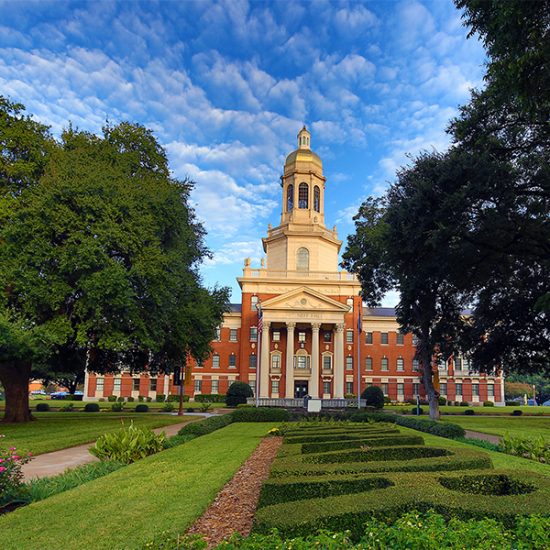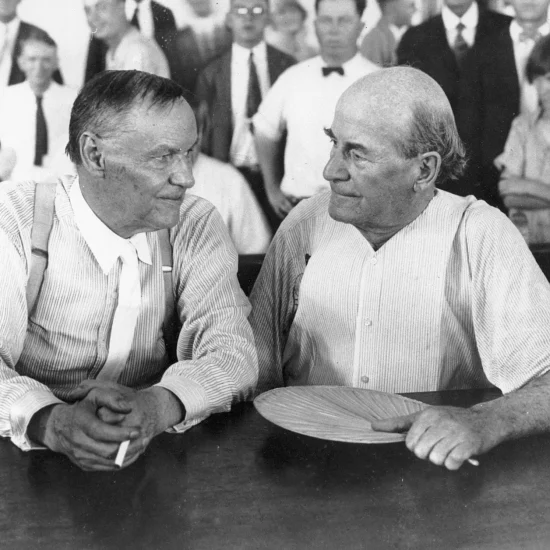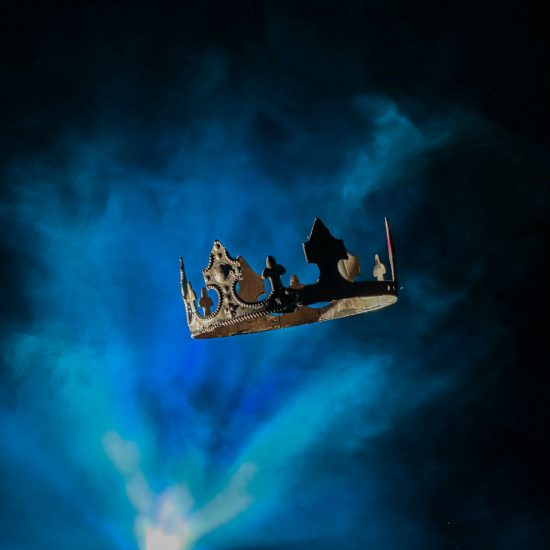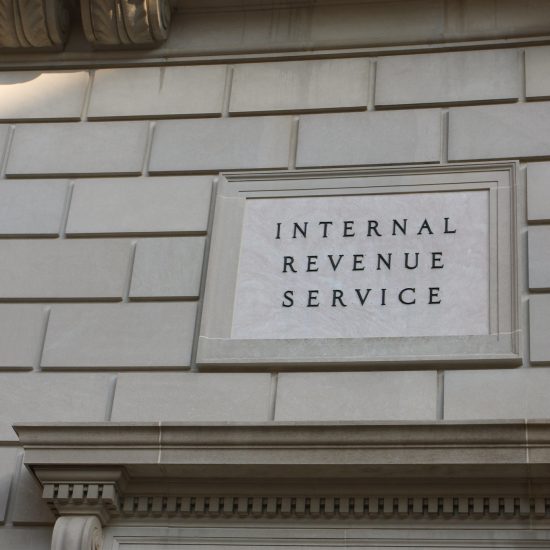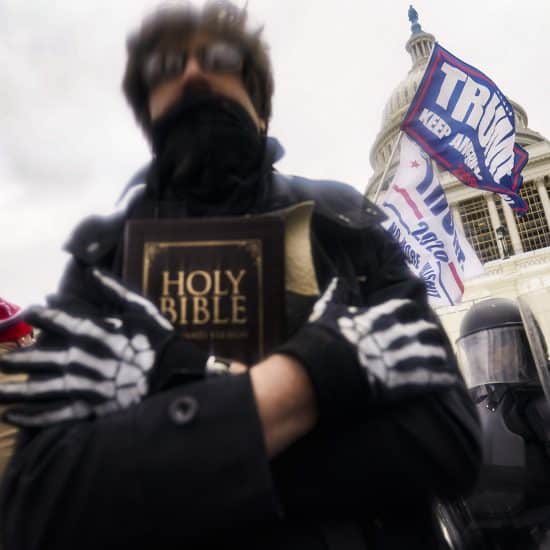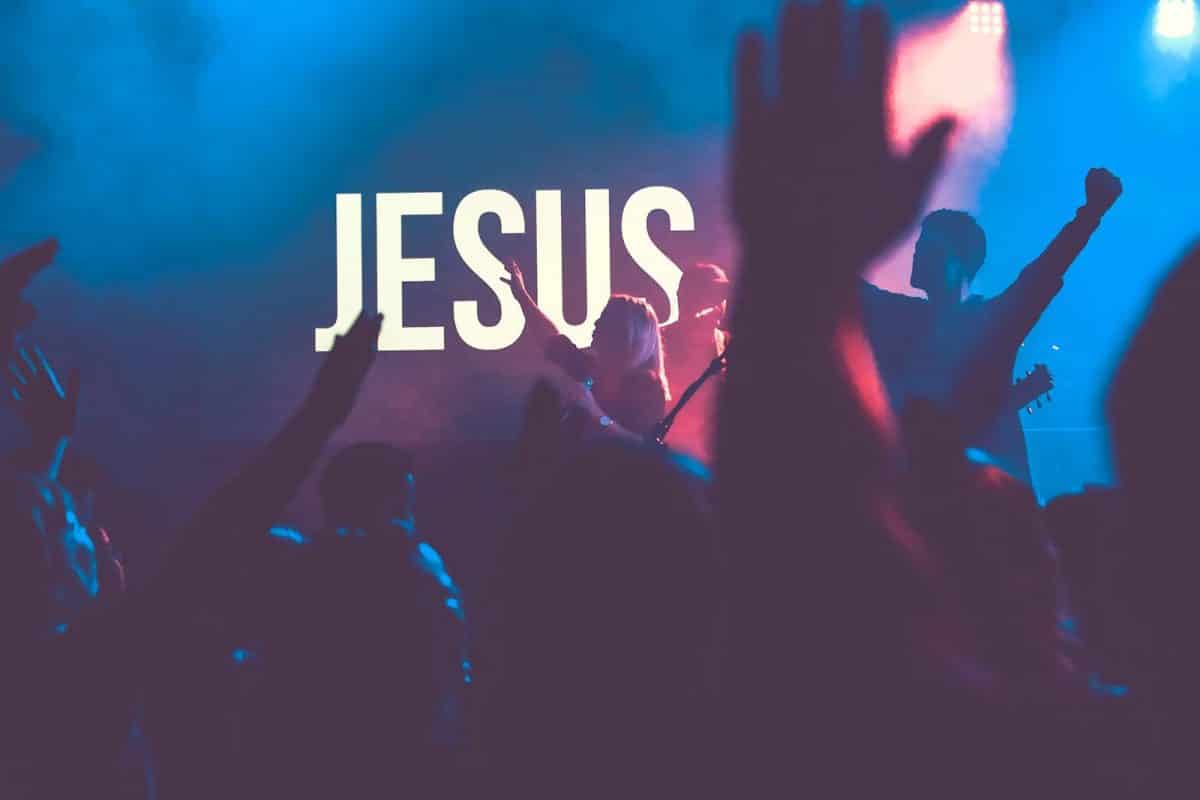
WASHINGTON (RNS) — A religion scholar believes major trends in religion and politics can be traced back to the rise of the religious right in the 1990s, a sea change moment that set in motion an array of phenomena ranging from an uptick in religious disaffiliation to the radicalization of some Christian conservatives.
The sweeping theory is outlined in a new paper penned by Ruth Braunstein, an associate professor of sociology at the University of Connecticut. Her paper, titled “A Theory of Political Backlash: Assessing the Religious Right’s Effects on the Religious Field,” published late last year in Sociology of Religion, offers an unusually broad-based examination of the interplay between the religious right, the religiously unaffiliated, and the power of political backlash.

(Edward Cisneros/Unsplash)
Braunstein grounds her study in a trend well known to scholars and everyday religious practitioners alike: The number of “nones,” so called because of the answer they give to the question “what is your religious affiliation,” has increased dramatically in recent decades. In 1972, the General Social Survey reported that 5% of Americans did not claim a religious affiliation. But that number shot up during the 1990s and again in the 2010s: According to the Public Religion Research Institute, the religiously unaffiliated represented around 23% of the country as of 2020 — a larger percentage than White evangelical Protestants, White mainline Protestants, or White Catholics.
Religious leaders and scholars have pondered the ongoing shift since it began, with some speculating the root cause is political. The rise of the nones, so the theory goes, is largely a backlash to the rise of the religious right in the 1990s: As campaigns by conservative Christians increasingly became associated with all religion in the public square, religious Americans who rejected their messages — particularly a subset of liberals with weaker connections to institutional religion — ultimately cut ties with religion altogether, identifying as nones instead.
But in her paper, Braunstein hypothesizes this cause-and-effect relationship is actually more complicated — and more wide-ranging. The uptick in liberal-leaning nones, she says, is but one example of “broad backlash” — a backlash against religion in general, even as some nones don’t necessarily give up religious practices or belief in a higher power. But, she argues, there are also at least three “narrow” backlashes to the religious right that have gone relatively unnoticed, all of which are helping shape the modern religious and political landscape.
“Backlash against the religious right doesn’t actually have to mean leaving religion altogether — even though that is a choice that many people are making,” she said in an interview this week with Religion News Service.
“There are some narrower forms of backlash that involve narrowly rejecting the religious right’s brand of politicized conservative religion by either reclaiming or reformulating a way of doing religion, of being religious and engaging in public religious expression.”
Braunstein pointed to data from Pew Research showing an increase in Americans who identified as “spiritual but not religious,” rising from 19% in 2012 to 27% in 2017. In her paper, she acknowledged that while the category likely includes people who agree with the campaigns of the religious right, other scholars have studied people who claim the moniker as a reaction to the “moral lapses of organized religion,” signaling that at least some spiritual-but-not-religious Americans are “moderates, neither religious zealots nor dogmatic atheists” seeking to distance themselves from conservative Christians.
“It is plausible that the rising embrace of a spiritual identity can be read partially as a narrow backlash against the religious right, even as it also seems clear that it cannot be read exclusively in these terms,” writes Braunstein, who also heads the Meanings of Democracy Lab at the the University of Connecticut.
Second, she notes the growth in positive attention paid to liberal religious activists, sometimes described as members of the religious left, who are known for passionately decrying the political efforts of conservative Christians. Braunstein argues “progressive religious mobilization represents a different form of backlash than the one associated with religious disaffiliation,” one that doesn’t reject religion altogether but uses “the presence of the religious right to cast more moderate forms of public religious expression in a positive light.”
While religious liberals may have reduced as a share of the overall population, Braunstein points to a recent report examining data from the Cooperative Congressional Election Study that found liberal-leaning religious activists are “the most active group in American politics.” When combined with an uptick in media reports focused on the movement — ranging from the New York Times to Politico — Braunstein couched this phenomenon as yet another “narrow backlash” in response to the religious right.
“There is heightened positive attention to groups like the religious left,” she said. “We saw that during (former President Donald) Trump’s presidency and during campaign seasons — including a recent New York Times column where Nicholas Kristof … said how excited he is that the religious left is more visible and prominent, to provide a kind of religious counter ballast to the religious right. I think we’re seeing it in the form of Democratic presidential candidates, talking openly about their faith and about the important role their religion plays in shaping their commitments to things like justice and equality.”
Braunstein then pointed to a final narrow backlash: a tendency among some liberal mainline traditions to decouple political activism from religion. She explained it as a shift not so much in religious affiliation or ideals as an overall tweak to the words used to describe them.
“This scenario differs from a broad backlash in that people remain committed to the religion field, but nonetheless frame their depoliticized version of religious expression as a positive alternative to politicized conservative religion,” she writes. She added that while this approach shares the religious left’s desire to reject the association of religion with conservative politics, “it does not do so by publicly embracing the fusion of religion and liberal politics, but rather by delinking religion from all politics.”
But as liberals — and particularly religious liberals — responded to the religious right over the decades, Braunstein says, something else was happening to the religious right itself: It experienced the effects of a counter backlash, a “feedback effect” that leads to “doubling down” in the face of criticism.
The result was the development of what Braunstein called a “purification process” among politically active conservative Christians in general, and White evangelicals in particular. When more moderate voices in their fold challenged campaigns against abortion and same-sex marriage — or, more recently, support for Trump and his broader political movement — they were often excised. She pointed to Russell Moore and Beth Moore (no relation), both prominent Trump critics who received significant backlash from fellow evangelicals. They both left the Southern Baptist Convention last year: Beth Moore, an author and Bible teacher, publicly left the SBC altogether, whereas Russell Moore resigned from his lofty position as president of the denomination’s ethics commission and began quietly attending a church unaffiliated with the SBC.
“Because of the effort to purify their group and be less tolerant of political dissent within their communities, we’re seeing high profile and everyday examples … being pushed out of evangelical communities because they question the political kind of choices of that community,” she said.
What’s left is a religious right with “fewer checks on radical ideas,” she said. It can have dire results: She cited those who have embraced the Christian Nationalism on display during the insurrection at the U.S. Capitol on Jan. 6, 2021.
Braunstein said she isn’t sure what the future holds, but she’s particularly interested in the fate of conservative Christians who flee bastions of the religious right. She expressed particular interest in recent polling from PRRI indicating a sudden rise in white mainline Christians after years of decline. She said the shift needs more study but could indicate religious right exiles finding spiritual homes elsewhere — or at least identifying differently.
“We’re potentially seeing it on the ground in people who had disaffiliated from religion or leaving conservative Christian spaces, and are trying to create new spaces that are both religious and not necessarily in the vision of this politicized conservative religion that has become so prominent,” she said. “That’s taking lots of forms and requiring a lot of trial and error.”

